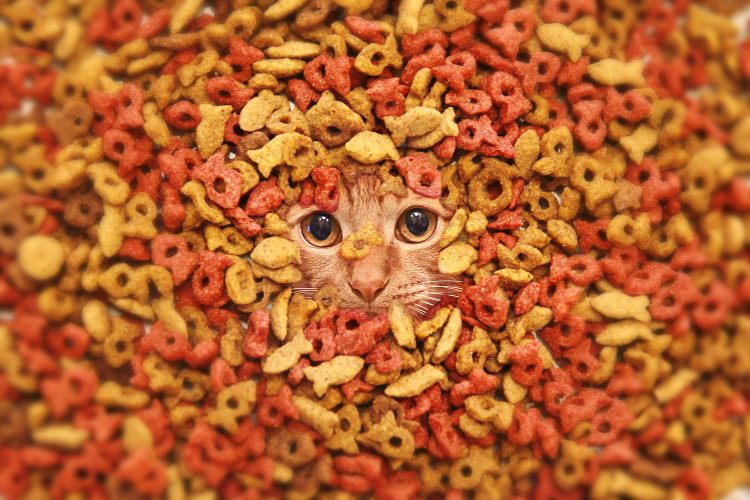Because of an increase in the number of cats and dogs on the planet, we have to factor in the environmental impact of pet food manufacture in 2020, so concluded a new study. With increased human population growth and increased popularity of cats and dogs there is an increase in pet food manufacture and it has been decided by researchers at the University of Edinburgh that the negative environmental impact associated with the manufacturer of dry food for pets needs to be factored in when we discuss climate change and how to curb it (the researchers looked at dry pet food manufacture).

There are many more articles on dry cat food on PoC. Please search for them if you are interested.
The study concluded that pet food manufacturer contributed to greenhouse gas emissions at a level equivalent to the countries of Mozambique or the Philippines both of which are around the 60th highest emitting countries.
In another comparison, the pet food manufacturing industry produces the equivalent of up to 1/6 of the carbon dioxide (CO2) emissions of the global aviation industry. Further, an area double the size of the UK is needed to produce dry pet food for cats and dogs annually.
Peter Alexander, of the University’s School of Geosciences, who led the study said:
We have shown that pets and how they are fed should be considered alongside other actions to reduce climate change and biodiversity loss.
They analysed more than 280 types of dry pet food from the US and Europe. Half of all dry food is made up of crop plants i.e. maize, rice or wheat. The rest includes animal or fish products. The production of dry cat food requires 49 million ha of agricultural land and 95% of pet food sales are dry foods.

To add some scientific detail, they found that the annual global drive pet food production is associated with “56–151 Mt CO2 equivalent emissions (1.1%−2.9% of global agricultural emissions), 41–58 Mha agricultural land-use (0.8–1.2% of global agricultural land use) and 5–11 km3 freshwater use (0.2–0.4% of water extraction of agriculture)”.
They concluded that feeding companion animals has an environmental impact even if pet foods use bi-products. It is a subject which has been overlooked thus far and it needs to be considered when discussing the environmental impact of human activities.
The study is published in the journal Global Environmental Change. Researchers from the Karlsruhe Institute of Technology in Germany were involved and the research was supported by the the UK’s Global Food Security Programme and the Helmholtz Association.
P.S. Comment: half of all dry cat food is made from plants! How about that for a carnivore! They say that we should not feed a vegetarian diet to cats but we already are.

